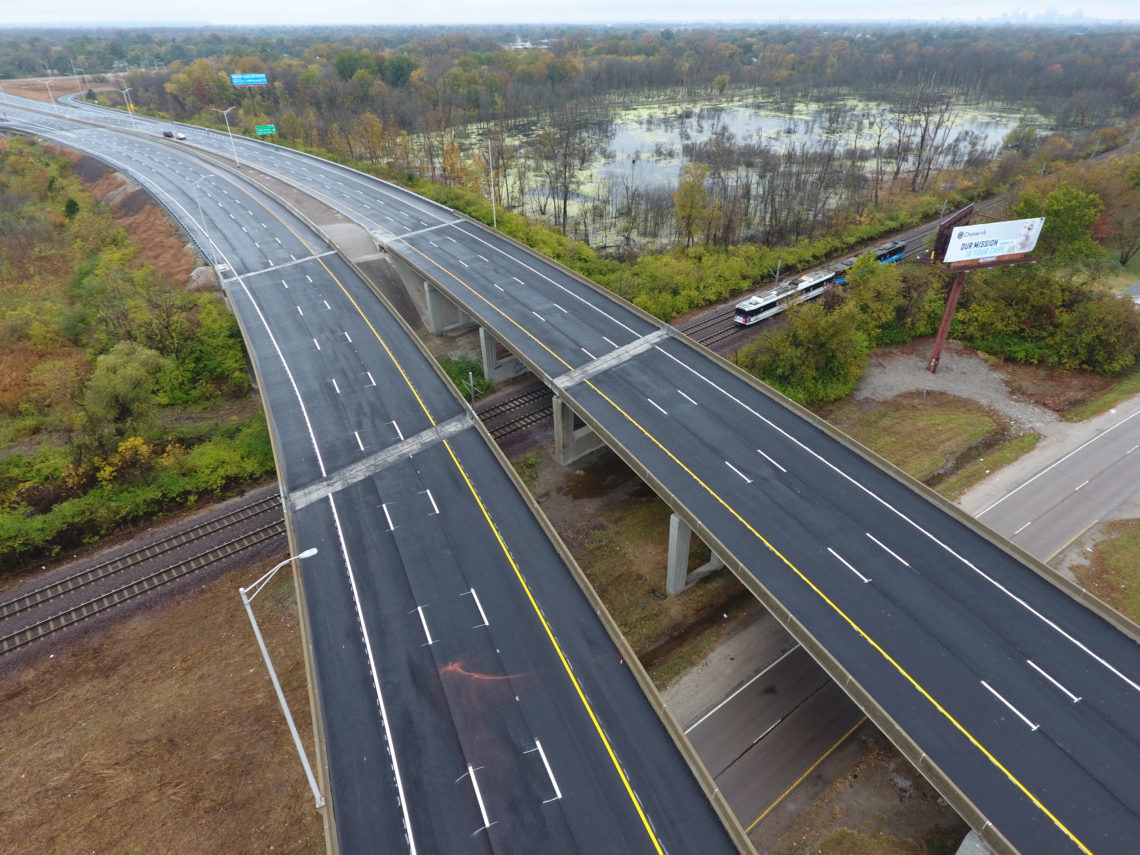
Fixing one of the worst roads in Illinois faster, cheaper, and safer
Thanks to a new approach to delivering projects in Illinois, I-255 improvements, which normally would have taken multiple construction seasons, were completed in only nine months. The scope of work included bridge repairs, resurfacing, improved highway lighting, upgrades to guardrails, safety improvements, and drainage enhancements.
For years, Interstate 255 just across the Missouri state line in Illinois had an infamous reputation.
Despite extensive maintenance efforts by the Illinois Department of Transportation, 40-year-old pavement seemingly deteriorated by the day. Complaints were routine. A major rehabilitation was required, but a funding solution was elusive.
That changed in the summer of 2019 with the passage of Gov. JB Pritzker’s historic, bipartisan Rebuild Illinois, the largest capital program in the state’s history.
Within months, the interstate was completely closed to traffic to begin a $67 million rehabilitation program, kickstarting Rebuild Illinois. On Halloween in 2020, a 7-mile stretch was completed and reopened – almost a month ahead of schedule.
By completely shutting down I-255, the project was completed faster, safer and cheaper. The condensed construction schedule reduced the project cost by approximately $14 million. Removing all traffic from the work zone provided a safer environment for motorists and construction workers.
From the outset of the project, IDOT used drones, traffic counters, employees in the field, and traffic reporting services to monitor and evaluate travel times, identify problem spots and record traffic volumes. This information helped the department offer valuable feedback to the public regarding the impact of construction and suggest underutilized alternate routes. Due to the success of I-255 and the lessons learned, a similar approach will be used in many large-scale projects by IDOT going forward, delivering overdue improvements at a much quicker pace, reduced cost, and overall reduced impact for the public.
Read additional stories from this state:
2021
2020


